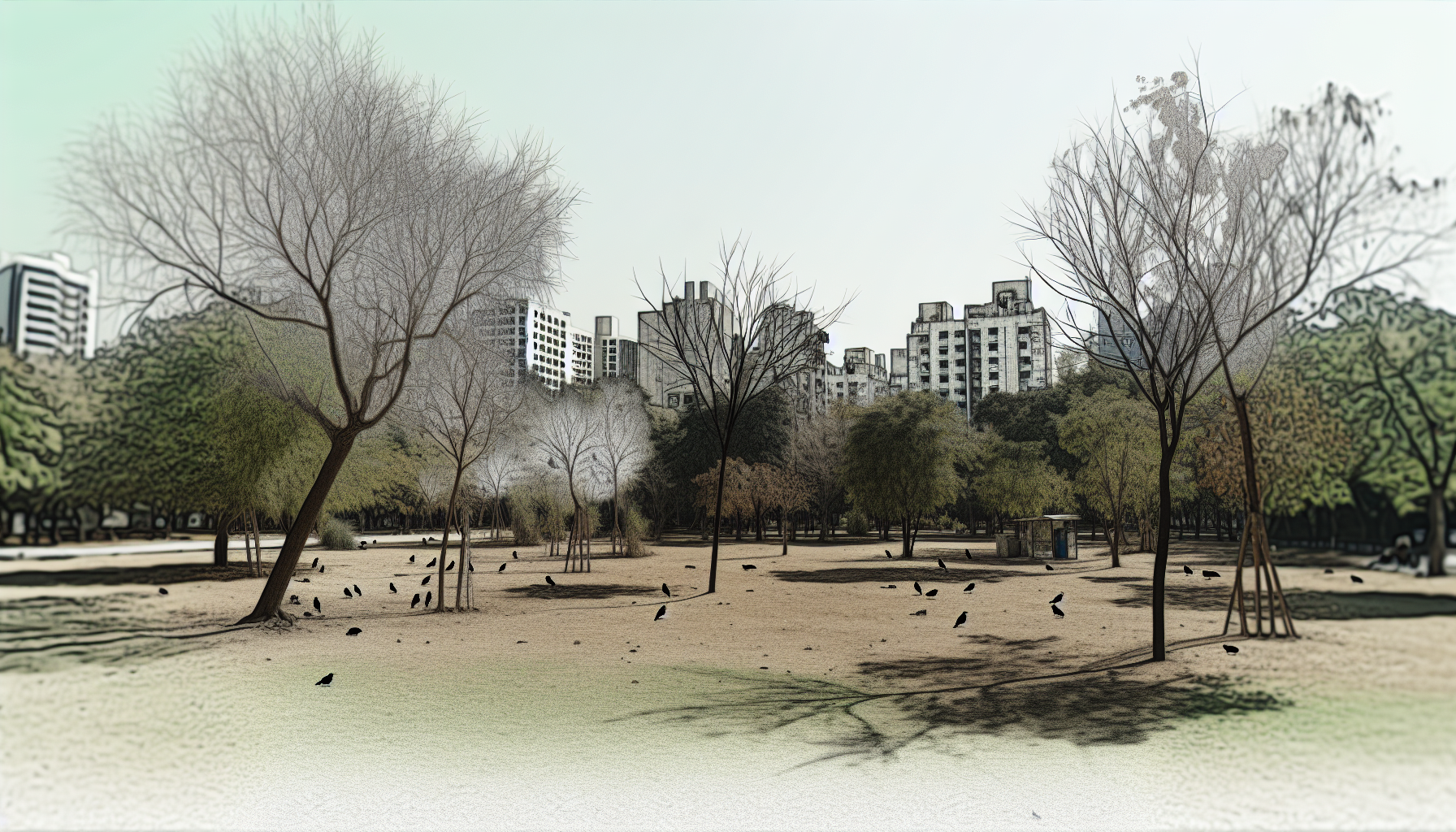In the ashen morning light, where the once melodious chorus of dawn used to greet the waking world, there is now a heavy hush. The ethereal tapestry of birdsong that adorned the air, lending rhythm to the rising sun and vitality to the awakening earth, has been brutally unraveled. ‘Hear the Silence: The Disappearance of Birdsong’ weaves an obituary for the auditory symphonies that now exist only as fading echoes in the crumbling halls of memory.
One might think that in the colossal void left by absent warbles, trills, and tweets of our feathered friends, the remaining sounds of the world would grow louder, more pronounced. Instead, silence has a peculiar weight to it—a profound emptiness that presses against the chest with the realization that the vibrant voices of the avian world are being stilled, perhaps forever.
In this stark silence, we find ourselves in an auditory desert, a terrain barren of the joyful din of kestrels and kingfishers, robins and ravens. Witness the eerie stillness of the forests, once thriving ecosystems ringing with life, now echoing chambers of desolation. It’s a silence as deep as the ocean, and one that speaks volumes to the heart-wrenching consequences of environmental apathy.
Without the birds, not only is our soundscape impoverished, but so is the very fabric of ecological integrity. Seed dispersal, pest control, pollination—each vital process now hobbles on the precipice of dysfunction. In their absence, we till the soil of our own shortcomings, sowing seeds of inaction that bloom into silent springtimes.
Research paints a grim mural of decline. A study ominously titled ‘The Quiet Forecast’ reveals a 90% reduction in bird populations across diverse habitats, each statistic a somber note in the requiem for the skies. The causes are numerous—habitat destruction, climate change, pollution. Once diverse ecosystems are now just bone yards of biodiversity, with the silence left behind by the birds being one of the most poignant indicators of this global disintegration.
Cities, too, feel the loss. The urban tapestries, woven with the honks and hums of human ingenuity, miss the subtle, but significant interweaving of bird calls that once bridged the gap between human and nature.
Yet in the darkest irony, this loss is most keenly felt in places where birdsong was once a backdrop, unnoticed and uncherished. People awaken to a changed acoustic environment; one bereft of the melodies that, unbeknownst to many, set the tempo of our subconscious connection to the world around us.
This silence has permeated into the human psyche, heralding a lament in art, music, and culture. Where poets once found inspiration in the lilt of the lark, there is now a hollow void in the human soul—a void mirroring the barren skies. We face a symphony of sorrow, composed in the key of existential loss, played out in the somber octaves of a world where wings no longer flutter against the winds of change.
As we pivot from the realm of sound to the province of silence, the question arises: how did we reach this point of auditory anarchy? The answer lies in a series of choices, each a whisper contributing to the cacophony of consequence. It is a tale of unchecked consumption, ecological neglect, and a symphony of indifference that crescendoed into an unsustainable furor.
But within this narrative of ceaseless loss, wherein lies the message for the reader? It is not one of hope, for that melody is long out of tune with the chords of reality we now face. Rather, it is a narrative crafted to stir the soul, a dirge to the age of birds that begs for an acknowledgement of our role in their downfall—and a reflection on the profound silence that now defines the natural choir we once conducted with ignorance and arrogance.
As we stand rapt in the silence of a world without birdsong, let us not forget what once was. Let us hold a vigil to the beauty and diversity that thrived amidst the grand chorus of wings and voices. And in this remembrance, may we find the fortitude to bear witness to the consequences of our actions, and the understanding that some silences are far too profound to ever be broken.
